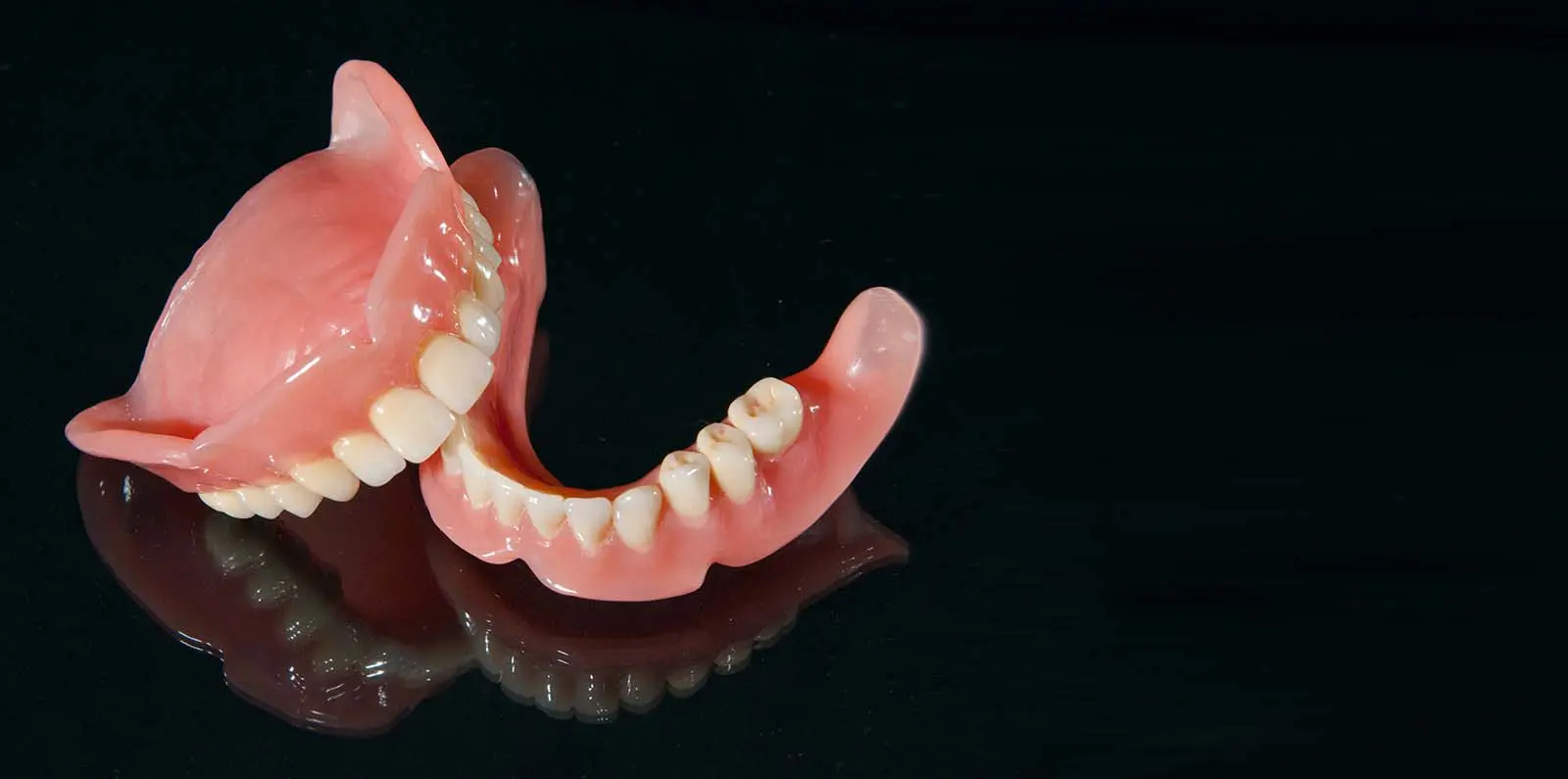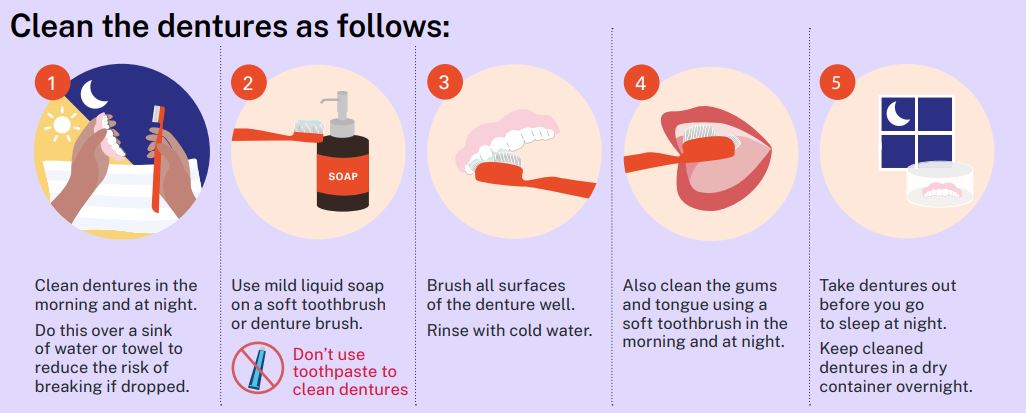All About Dentures

- Dentures are removable dental prostheses used to replace missing teeth.
- They are artificial teeth made of either acrylic or metal.
- Dentures can improve the appearance of the smile and help to restore the ability to chew and speak properly.
Process Of Denture
Why Are Dentures Used?

Dentures are used to replace missing teeth and restore your smile and ability to eat and speak properly. They provide support for cheeks and lips, preventing them from sagging and making a face look older.
Dentures also help to improve chewing ability and pronunciation and prevent remaining teeth from drifting out of position.
Dentures are used to improve chewing and speech, as well as give the face a more natural appearance.
Tips To Deal With Dentures

1. Use a soft-bristled toothbrush to clean your dentures: While a toothbrush is the best way to clean your dentures, it’s important to use a soft-bristled brush to avoid scratching or damaging the dentures.
2. Soak your dentures overnight: This helps to keep dentures clean and free of bacteria. Soaking in a denture-cleaning solution or plain water is recommended.
3. Use a denture adhesive: Denture adhesives can help to improve the fit of the dentures and make them more comfortable. It’s important to select an adhesive that is suitable for the type of dentures you have.
4. Visit your dentist regularly: Visiting your dentist regularly is important to help check the fit of your dentures and to make any necessary adjustments.
5. Avoid hard or sticky foods: Chewing hard or sticky foods can damage dentures, so it’s best to avoid them.
6. Take your dentures out at night: Taking your dentures out at night allows the gums to rest, which can help to reduce irritation.
FAQs On Dentures
How Long Do Dentures Last?
The average lifespan of a denture is 5-7 years, sooner if they become loose, uncomfortable, or damaged. Dentures should be checked regularly by your dentist to ensure they are still comfortable and fitting correctly. Your dentist will be able to determine when it is time for new dentures.
What is the Process of Getting Dentures?
Getting dentures usually involves multiple visits to the dentist and other required specialists. In the initial step, the dentist will take measurements and create molds of your mouth. This is followed by several visits for adjustments and fits until the dentures are comfortable.
What are the Different Types of Dentures?
For patients who have missing teeth, there are many different types of affordable and effective denture solutions available. These include:
- Full dentures – For patients who are missing all of their natural teeth
- Partial dentures – For patients who are missing just some of their natural teeth
- Denture-supported implants – Permanent dental replacements
How Often Should You Clean the Dentures?
Taking proper care of your dentures is essential to protect your oral health and ensure the longevity of your replaced teeth.
Special attention must be paid to cleanliness in order to remove any food debris, bacteria, and various stains that can affect the comfort and fit of your dentures. Dentists recommend cleaning your dentures twice a day: after each meal and before going to sleep.
Can you Sleep with Dentures in?
Regardless of the type of dentures you are using, it is not advised to go to sleep with dentures. To keep your mouth bacteria-free, your gums healthy, and your bones unaltered and strong, make sure to remove your dentures every night before going to sleep.
Myth And Fact On Dentures
Myth 1: Dentures Are Painful.
Fact: With the advances in denture technology, dentures are now designed to fit comfortably in your mouth. With proper care and regular visits to the dentist, dentures should not cause any discomfort.
Myth 2: Dentures Will Make It Difficult To Eat.
Fact: Although dentures may cause some difficulty with chewing in the beginning, with practice, you may eventually be able to eat the same foods you did before getting dentures.
It’s important to properly care for dentures to ensure they last long and remain in good condition. Regular cleaning and maintenance, as well as periodic adjustments, can help keep dentures comfortable and functional.
While dentures may take some time to get used to, they can greatly improve an individual’s quality of life and overall oral health. If you’re considering dentures, consult with your dentist to determine if they are the right option for you.


